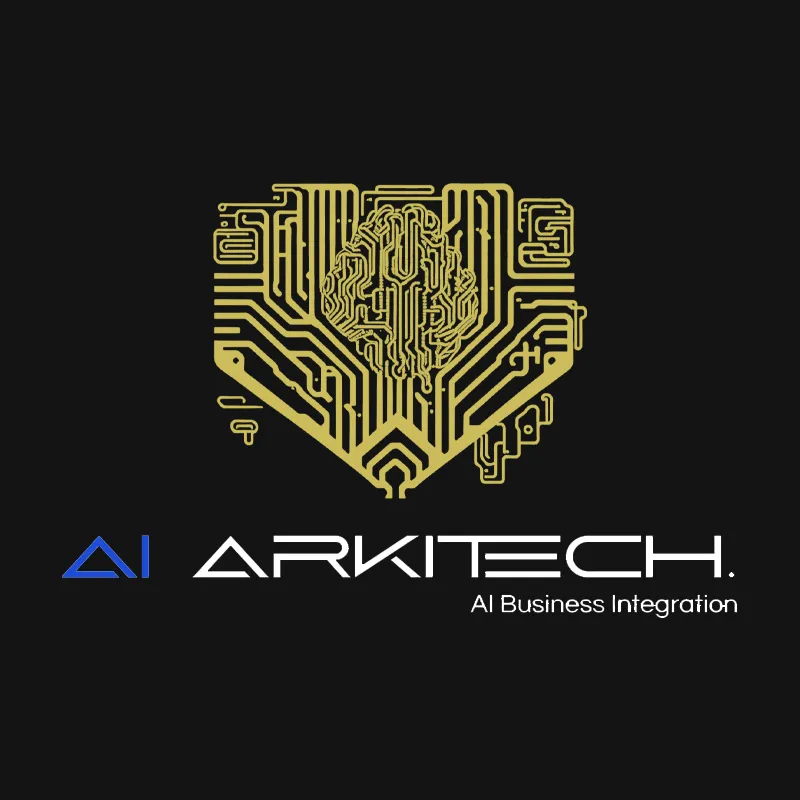See Our Latest Blogs
Dive into the evolving world of artificial intelligence with insights, strategies, and real-world examples that reveal how AI is reshaping industries, society, and the future. Stay informed, inspired, and ready to thrive in the AI Revolution.

Unlock AI Sales Forecasting Revenue Growth
In today's fast-paced and competitive business landscape, accurate sales forecasting and effective revenue generation are crucial for sustainable growth. To meet these challenges, businesses are turning to artificial intelligence (AI) for valuable insights and strategies. AI-powered sales forecasting models and revenue generation techniques have proven to be game-changers, empowering businesses to make data-driven decisions and maximize their profitability. In this article, we will explore how AI can unlock the power of sales forecasting and revenue generation, revolutionizing the way businesses operate.
The Importance of Sales Forecasting
Sales forecasting plays a vital role in helping businesses anticipate market demand, allocate resources effectively, and make informed strategic decisions. However, traditional forecasting methods often fall short in terms of accuracy and efficiency. This is where AI steps in, revolutionizing sales forecasting by leveraging advanced algorithms and vast datasets.
How AI Enhances Sales Forecasting
AI brings unparalleled accuracy and efficiency to sales forecasting by analyzing large volumes of data and identifying patterns and trends that might not be apparent to human analysts. By considering multiple variables such as historical sales data, market trends, and customer behavior, AI models generate more accurate forecasts, enabling businesses to make proactive decisions and stay ahead of the competition.
Benefits of AI-Powered Sales Forecasting
Implementing AI-powered sales forecasting offers numerous benefits for businesses:
Improved Accuracy: AI algorithms can process vast amounts of data with speed and precision, leading to more accurate sales forecasts compared to traditional methods. This accuracy enables businesses to make informed decisions and avoid costly mistakes.
Enhanced Efficiency: AI automates the sales forecasting process, eliminating manual tasks and freeing up valuable time for sales teams. This efficiency allows businesses to focus on strategic initiatives and proactive sales strategies.
Real-time Insights: AI models provide real-time insights into sales trends and customer behavior, enabling businesses to adapt quickly to changing market conditions. This agility allows for timely adjustments to sales strategies, resulting in increased revenue generation.
Optimizing Revenue Generation with AI
AI not only enhances sales forecasting but also provides powerful tools and techniques to optimize revenue generation for businesses:
Personalized Marketing: AI-powered algorithms analyze customer data, preferences, and behavior to deliver personalized marketing campaigns. By tailoring offers and recommendations to individual customers, businesses can increase conversion rates and maximize revenue.
Pricing Optimization: AI algorithms analyze market conditions, competitor pricing, and customer response data to optimize pricing strategies. By dynamically adjusting prices based on demand and customer behavior, businesses can maximize profitability and revenue generation.
Sales Process Automation: AI-powered chatbots and virtual assistants can handle routine customer inquiries and streamline the sales process. This automation improves customer experience, reduces response times, and frees up sales teams to focus on high-value activities.
Limitations and Challenges
While AI offers tremendous potential, it is essential to consider the limitations and challenges associated with its implementation:
Data Quality: AI models rely on high-quality, accurate data for accurate predictions. Ensuring data integrity and addressing data biases are crucial to achieving reliable results.
Interpretability: AI models can be complex and difficult to interpret. Businesses need to invest in explainable AI approaches to understand the reasoning behind the generated forecasts and recommendations.
Adoption and Integration: Implementing AI-powered solutions requires careful planning and integration with existing systems. Businesses must ensure proper training, change management, and align AI initiatives with their overall business strategies.
Getting Started with AI for Sales Forecasting
To embark on an AI-powered sales forecasting journey, businesses can follow these steps:
Define Objectives: Identify the specific sales forecasting and revenue generation challenges that AI can address within your organization. Set clear goals and objectives for implementing AI in your sales forecasting processes.
Gather and Prepare Data: Collect relevant data sources, including historical sales data, customer data, market data, and any other relevant information. Clean and prepare the data to ensure its quality and integrity.
Choose the Right AI Tools and Platforms: Research and select AI tools and platforms that align with your business needs and budget. Consider factors such as ease of use, scalability, and compatibility with existing systems.
Train AI Models: Use the collected and prepared data to train AI models specific to your sales forecasting objectives. This may involve working with data scientists or utilizing pre-built AI models that are customizable to your business needs.
Evaluate and Fine-tune: Continuously evaluate the performance of your AI models and make necessary adjustments to improve accuracy and effectiveness. This may involve refining algorithms, adjusting data inputs, or incorporating feedback from sales teams.
Implement and Monitor: Integrate the AI-powered sales forecasting solution into your existing systems and processes. Monitor its performance regularly, gather feedback from users, and make necessary refinements to ensure optimal results.
The power of AI in enhancing sales forecasting and revenue generation cannot be overstated. Harnessing the vast potential of AI algorithms, businesses can gain valuable insights, improve accuracy, and optimize revenue generation strategies. AI enables businesses to make data-driven decisions, anticipate market demand, personalize marketing campaigns, optimize pricing strategies, and automate routine tasks. However, it is essential to be mindful of challenges such as data quality, interpretability, and integration. With careful planning, adoption, and proper training, businesses can unlock the full potential of AI and revolutionize their sales forecasting and revenue generation processes, paving the way for sustainable growth and success in today's competitive business landscape.
FAQs:
1. How does AI enhance sales forecasting? AI enhances sales forecasting by leveraging machine learning algorithms to analyze large datasets and identify patterns and trends. Unlike traditional methods that rely on historical data and subjective inputs, AI can process vast amounts of data quickly and accurately. By recognizing complex correlations and patterns, AI models generate more precise forecasts, enabling businesses to anticipate market demand, optimize inventory management, and improve resource allocation.
2. What are the benefits of AI-powered sales forecasting? Implementing AI-powered sales forecasting offers several key benefits for businesses:
a. Improved Accuracy: AI algorithms analyze data with precision, leading to more accurate sales forecasts compared to traditional methods. This accuracy enables businesses to make informed decisions and avoid costly mistakes.
b. Enhanced Efficiency: AI automates the sales forecasting process, eliminating manual tasks and saving time for sales teams. This efficiency allows businesses to focus on strategic initiatives and proactive sales strategies.
c. Real-time Insights: AI models provide real-time insights into sales trends and customer behavior, enabling businesses to adapt quickly to changing market conditions. This agility allows for timely adjustments to sales strategies, resulting in increased revenue generation.
3. How can AI optimize revenue generation? AI offers several powerful tools and techniques to optimize revenue generation for businesses:
a. Personalized Marketing: AI-powered algorithms analyze customer data, preferences, and behavior to deliver personalized marketing campaigns. By tailoring offers and recommendations to individual customers, businesses can increase conversion rates and maximize revenue.
b. Pricing Optimization: AI algorithms analyze market conditions, competitor pricing, and customer response data to optimize pricing strategies. By dynamically adjusting prices based on demand and customer behavior, businesses can maximize profitability and revenue generation.
c. Sales Process Automation: AI-powered chatbots and virtual assistants can handle routine customer inquiries and streamline the sales process. This automation improves customer experience, reduces response times, and frees up sales teams to focus on high-value activities.
4. Are there any limitations or challenges to consider? While AI offers tremendous potential for sales forecasting and revenue generation, it is essential to consider the following limitations and challenges:
a. Data Quality: AI models rely on high-quality, accurate data for accurate predictions. Ensuring data integrity and addressing data biases are crucial to achieving reliable results.
b. Interpretability: AI models can be complex and difficult to interpret. Businesses need to invest in explainable AI approaches to understand the reasoning behind the generated forecasts and recommendations.
c. Adoption and Integration: Implementing AI-powered solutions requires careful planning and integration with existing systems. Businesses must ensure proper training, change management, and align AI initiatives with their overall business strategies.
5. How can businesses get started with AI for sales forecasting? To get started with AI for sales forecasting, businesses can follow these steps:
a. Define Objectives: Identify the specific sales forecasting and revenue generation challenges that AI can address within your organization.
b. Gather and Prepare Data: Collect relevant data sources, including historical sales data, customer data, market data, and any other relevant information. Clean and prepare the data to ensure its quality and integrity.
c. Choose the Right AI Tools and Platforms: Research and select AI tools and platforms that align with your business needs and budget. Consider factors such as ease of use, scalability, and compatibility with existing systems.
d. Train AI Models: Use the collected and prepared data to train AI models specific to your sales forecasting objectives. This may involve working with data scientists or utilizing pre-built AI models that are customizable.
e. Evaluate and Fine-tune: Continuously evaluate the performance of your AI models and make necessary adjustments to improve accuracy and effectiveness. This may involve refining algorithms, adjusting data inputs, or incorporating feedback from sales teams.
f. Implement and Monitor: Integrate the AI-powered sales forecasting solution into your existing systems and processes. Monitor its performance regularly, gather feedback from users, and make necessary refinements to ensure optimal results.
g. Provide Training and Support: Train your sales teams on how to leverage AI-driven insights effectively. Offer ongoing support to address any challenges or questions they may have during the implementation and utilization of AI for sales forecasting.
h. Evaluate Results and Iterate: Continuously evaluate the impact of AI on sales forecasting and revenue generation. Analyze the results, measure key performance indicators (KPIs), and identify areas for improvement. Iterate and refine your AI models and strategies based on the insights gained from this evaluation process.
i. Stay Updated: AI technologies and methodologies are constantly evolving. Stay informed about the latest advancements, industry trends, and best practices in AI for sales forecasting. This will help you stay ahead of the curve and leverage new opportunities as they arise.
Integrating AI into sales forecasting and revenue generation is no longer a futuristic concept—it's a present-day necessity for businesses aiming to stay competitive and agile. By harnessing the predictive power of AI, companies can gain deeper insights, make smarter decisions, and uncover hidden growth opportunities. From personalized marketing to dynamic pricing and automated sales processes, AI offers a transformative edge that drives both efficiency and profitability. As with any powerful tool, success lies in thoughtful implementation, ongoing evaluation, and a commitment to data integrity. Embracing AI today means setting your business up for smarter, faster, and more sustainable growth tomorrow.
What Our Clients Are Saying.

D. Ryan

“The 'Replace Yourself with AI' class offered by AI Arkitech was a revelation. It challenged my approach to work and equipped me with powerful AI tools, helping me automate numerous tasks and significantly boost my productivity. A must-attend for anyone looking to stay relevant in today's fast-paced digital era."

Sofia C.

"I cannot express enough how 'Chat GPT Mastery' has transformed our customer service department. AI Arkitech's clear instructions and real-life applications have empowered us to develop a seamless and efficient AI chatbot system, greatly enhancing our customer engagement and satisfaction. This course is a solid investment for businesses looking to leverage AI."

Mark T.

“AI for Creatives: Midjourney Mastery' was a game-changer for our creative team. AI Arkitech has masterfully crafted the course, making AI approachable and engaging for creatives. We've since unlocked novel ways of integrating AI into our creative process, leading to exceptional work that sets us apart in our industry.”
Get In Touch
Email: [email protected]
Address
Office: 1317 Edgewater Dr. Ste 458, Orlando, FL 32804
Assistance Hours
Mon – Thurs. 9:00am – 5:00pm
Friday - Sunday – CLOSED
Phone Number:
(888)429-5094
Transform. Optimize. Monetize. Secure.
The Next Era of Digital Asset Engineering is Here—Are You Ready?
JOIN THE FUTURE!
Home
Who We Are
Training
Serices
Blog
Contact
Copyright © 2025 by AI Arkitech, LLC - Powered by: Impctrs Management Group, LLC | All rights reserved.



